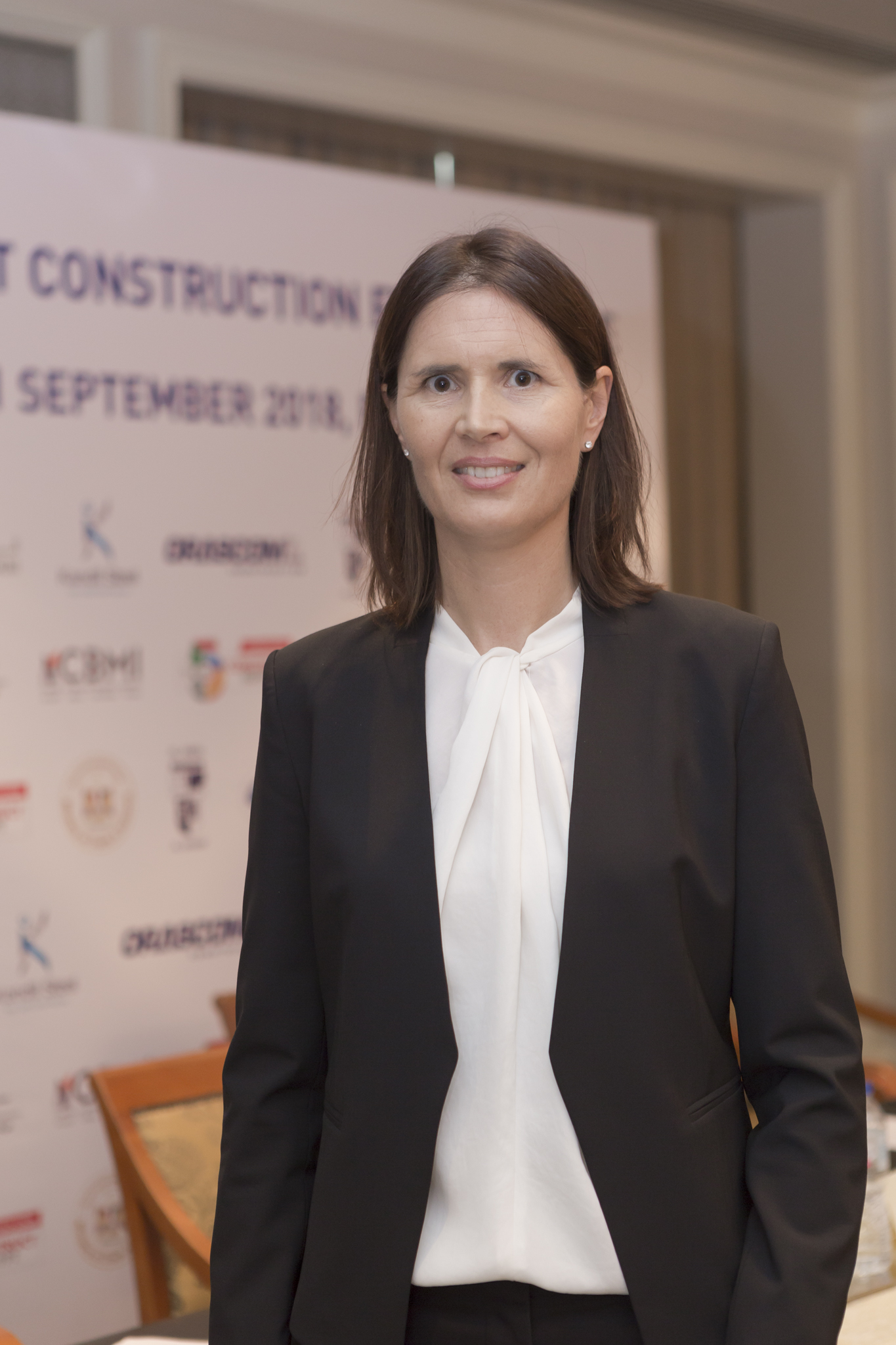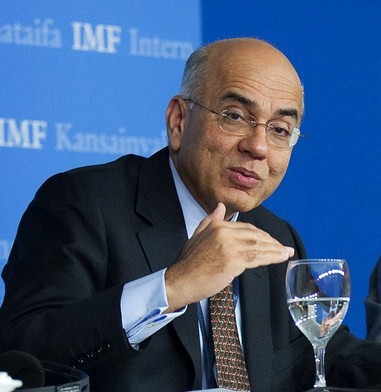Bank Audi Egypt is planning to increase the size of its loans portfolio by EGP 4.5bn by the end of 2017, according to Mohamed Fayed, CEO& managing director of the bank.
Fayed told Daily News Egypt that the amount planned to be injected to the bank’s loans portfolio will include EGP 2bn to be allocated to small and medium-sized enterprises (SMEs).
He added that the financing ratio directed to these projects registered 6% of the bank’s total loans portfolio, compared to only 1% in 2015.
Fayed added that they target to increase it to 20% in 2019, in line with the initiative launched by the Central Bank of Egypt (CBE) to support these projects.
Fayed pointed out that the amendment conducted by the CBE to the definition of such projects after the flotation of the pound helped the bank greatly to achieve its targets in financing these projects, especially as it believes in the SMEs’ importance on one hand, and the saturation of the major companies on the other.
Audi Bank Egypt has revealed on Monday its business results indicators during 2016.
The bank held a press conference attended by Mohamed Fayed; Mohamed Bedeir, deputy managing director; Mohamed Latif, head of institutions and Islamic banking and marketing; and Mohamed Shawky, head of the financial sector at the bank.
The business results of the bank registered a net profit—after a tax deduction—of EGP 1.883bn by the end of 2016, compared to EGP 586m by the end of December 2015.
Fayed said that after excluding the impact of the liberation of the dollar exchange rate, the net profit will be EGP 734m, an increase of 40% from 2015, despite allocating EGP 272m to deal with the non-performing loans.
The total deposits of customers registered EGP 45.5bn by the end of 2016, and reached EGP 39.4bn after excluding the impact of the exchange price by a real increase of 23% compared to 2015.
Fayed revealed that the bank has achieved a 30% growth in its loans portfolio during 2016, to record EGP 30.3bn. He added that the corporate sector accounts for 84% of the total of that portfolio, while individuals or retail banking sector make up 16%.
In terms of the classification of loans granted to companies, Fayed said that large companies make up 74% of the total loans, SMEs account for 6%, Islamic finance for 2%, and the rest are loans provided with cash guarantees for various activities.
He noted that the industrial sector makes up 32% of the total loans portfolio of the bank, as the bank focuses on supporting this important sector and its role in the development of the state’s resources of foreign exchange. The public sector companies and public business sector account for roughly 15% of the loans portfolio. The trade sector meanwhile for roughly 11%, the real estate sector investment for 12%, individuals for 16%, and the remaining percentage is composed of other sectors and activities.
In terms of the ratio of the non-performing loans (NPL) of the Bank, Fayed said that despite the wide growth achieved by the bank, it also focuses on its quality. The NPL ratio declined to 1.5%, one of the lowest in the Egyptian banking sector. He noted that these NPLs are all specified under the non-performing loans. The NPLs are fully covered with a 100% ratio.
With regard to the role of the bank in financing major projects implemented by the state in the current and coming periods, Fayed said that the bank is definitely keen on financing large projects planned to be implemented. He pointed out that the bank is waiting for the projects of the Suez Canal development project or the new and renewable energy projects to enter the implementation phase in order to finance them, whether individually or through syndicated loans in cooperation with other banks.
The bank met with a lot of investors that wish to establish new and renewable energy projects, and made a considerable progress in the negotiations with them about how to fund these projects.
Audi Bank Egypt is planning to implement a powerful expansion plan outside Cairo during the current year, particularly in Upper Egypt, Suez Canal, and Delta cities.
The bank has opened a branch recently in Port Said, and it plans to open a branch in Assiut next month, another in Damietta in two months, and two more in Zagazig before the end of the year, according to Fayed.
The bank aims to reach its customers everywhere, whether through traditional ways—via its 43 branches, which many people prefer—through alternative channels of communication, such as modern technological services, or through a network of 128 ATMs in different locations.
In terms of the bank’s market share in the Egyptian market, Fayed said the bank accounted for 1.5% of total assets in the market at the end of September 2016.
The bank’s total assets amounted to EGP 55.1bn by the end of 2016, which equals 45.2bn excluding the impact of the change of the exchange price, with an actual increase of 21% compared to total assets in 2015.
The bank’s market share reached 1.6% on the level of deposits and 2.6% on the level of loans.
Fayad added that the bank was the third largest private bank in the Egyptian market during 2016 in registering growth rates in loans portfolio, only topped by the Commercial International bank (CIB) and Qatar National Bank (QNB).
In terms of the growth rates that the bank intends to achieve by the end of 2017, Fayed said the bank aims to achieve a 20% growth ratio in various activities by the end of this year.
He stressed the bank is capable of growing at a larger scale and of expanding faster in its various activities in order to obtain a larger market share. Fayed added that the bank can achieve more growth and have a larger market share, but it does not seek to do so as much as it seeks to achieve well-balanced growth, so that loans perform well and deposits be stable. The nature of growth is more important than the growth rates themselves, he emphasised.
He added that banks are operating in difficult conditions, as the market data changes on a daily basis, which pushes the bank to review its plans almost every week. He pointed out that the exchange price movements after the flotation of the pound could increase growth rates to more than the bank’s targets, and it also could hinder achieving the targeted growth.
Bank Audi Egypt is committed to the highest standards of risk management and fully abiding to the instructions of the CBE in this regard. The bank always works on concentrating less on specific activities, according to Fayed.
With regard to the size of financing granted by the bank as part of the CBE initiative to finance houses of people with a low- to middle-income, he said that the size of that portfolio registered EGP 206m by the end of 2016, of which EGP 200m was injected in 2016 alone.
He noted that there are barriers that still hinder banks from starting the implementation of this initiative, such as the lack of bankable units and the presence of customers who meet the conditions of the initiative or who are eligible for funding.
Fayed ruled out the possibility of expanding in the activity of the direct investment in companies at the moment, as this type of investment adversely affects the property rights of the bank. The bank may expand in this activity at a later stage when there is a surplus in the capital base of the bank.
He furthermore revealed that the bank is intending to launch mobile wallet services within two months in order to facilitate the service provided to its customers and to be added to the modern technological services package—which is considered an important factor in achieving financial inclusion.
Regarding the role of the bank in corporate social responsibility (CSR), Fayed said the bank is basically interested in the health and education sectors. He revealed that the bank will provide EGP 13m to support institutions and associations working in these sectors, along with its contributions to the Federation of Egyptian Banks’ initiative in developing slums, supporting women, and observing global standards to maintain the environment.



